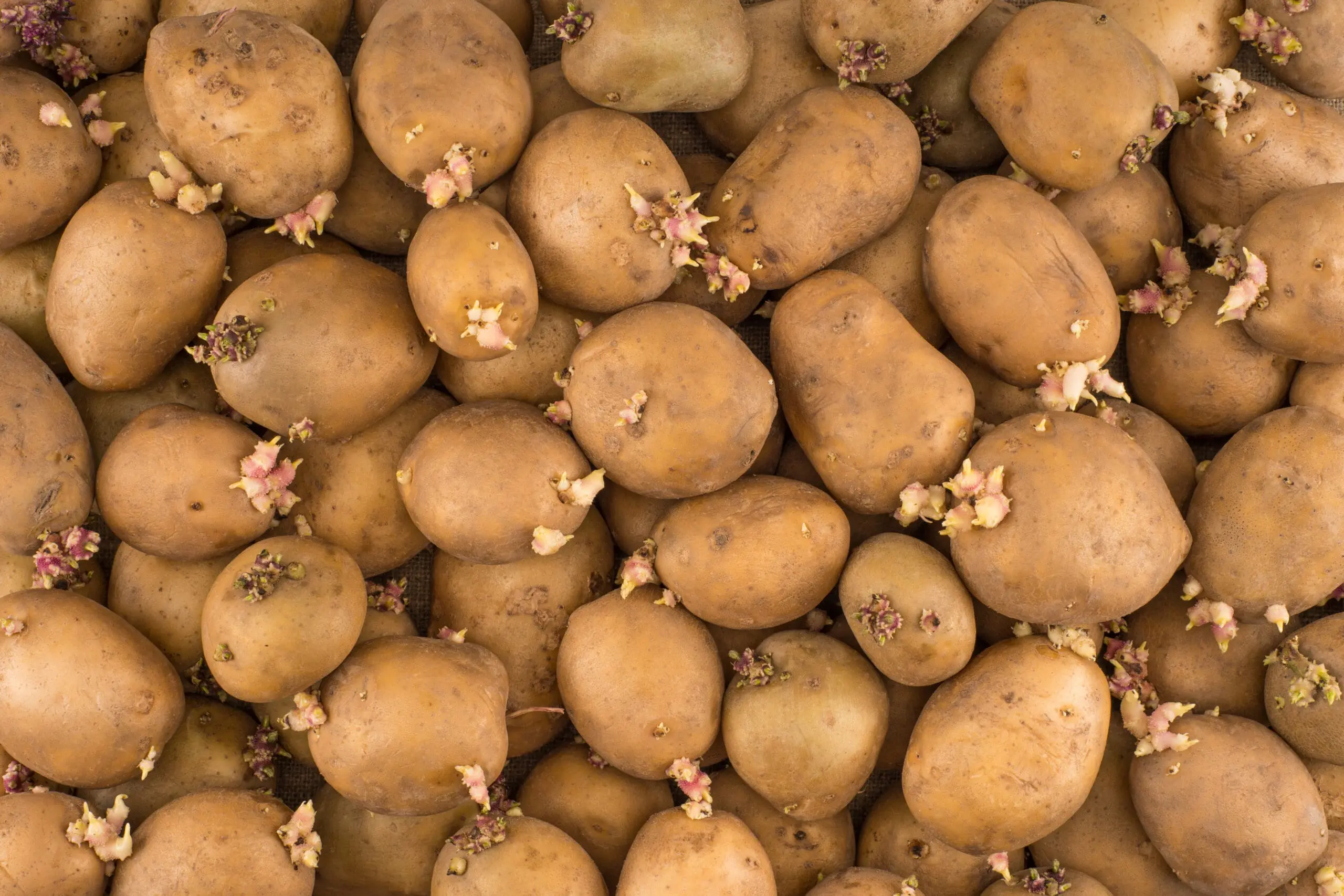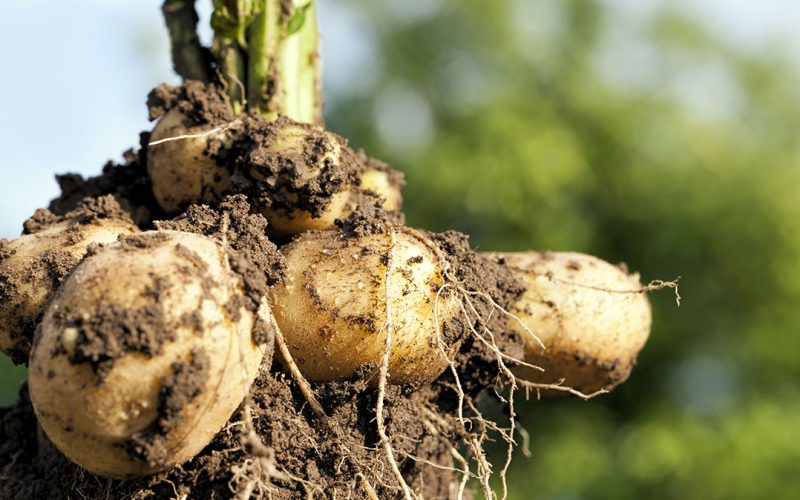Potatoes remain the UK’s favourite vegetable by a long shot, playing a key role in the nation’s agricultural sector and rural economy. With the country’s varied geography and climate, British farmers grow a wide range of potato varieties to meet diverse market demands and consumer tastes.
But despite its popularity, potato farming in the UK is facing difficulties. The most recent Agriculture in the United Kingdom 2022 report showed an 11% decrease in agricultural land planted with potatoes from 2020-2022, with approximately ~30% of UK potatoes imported.
Potato production is labour intensive and highly machine-dependent and has steadily declined in recent years, squeezed by rising costs for seeds, fertilisers, equipment, along with unpredictable weather and shifting market prices. These challenges put a strain on narrow profit margins, with the added pressure of reducing approved pesticides for pest, weed and disease management, it reduces potato growers’ ability to maintain stable operations.
In response, UK potato growers are turning to technology and innovation to boost efficiency and cut costs. From targeted breeding, optimising potato varieties and planting methods to improving irrigation and harvesting techniques, these advances are helping farmers achieve better yields and reduce waste—critical steps towards maintaining potato production.
Storage Solutions
Proper storage of potatoes is crucial for maintaining quality, extending their shelf life and minimising waste. After harvesting, improper storage can lead to sprouting, dehydration, storage diseases and spoilage due to exposure to light, heat or humidity. Effective storage preserves their nutritional value, taste and texture, allowing for consistent supply throughout the year, even outside of growing seasons. Innovations in storage technology are extending the shelf life of potatoes, reducing losses and enabling farmers to better manage supply and demand throughout the year.

Facilities Spotlight
The Crop Storage and Post-harvest Solutions (CSPS) facility, funded by Innovate UK, simulates storage environments for potato crops with research capabilities. Projects using these facilities accurately measure conditions including temperature, humidity, atmospheric composition and more with a focus on:
- Development of pre-and post-harvest monitoring and modelling for prediction of storage potential.
- Supply chain tracking and monitoring, optimising store management with a focus on energy efficiency.
- Research on opportunities for automation and labour saving.
- Development and testing of potato sprout suppressant technologies plus testing novel, sustainable packaging materials.
The network of facilities is located at three sites in the UK; the James Hutton Institute in Scotland, ADAS Boxworth in Cambridge and the National Resources Institute in Kent.
Crop Health Specialist at the UK Agri-Tech Centre, Dr. Andy Evans, said:
“Since the closure of the AHDB Sutton Bridge Crop Research unit, there has been a gap in Crop Storage research, which CSPS aims to fill and re-establish a strong network of post-harvest research capacity across the UK. The CSPS partners have access to a wide range of complementary and multidisciplinary skills to target complex problems in addressing crop storage and food security.”
Pests and Disease
Tackling pests in agriculture, especially in potato farming, requires innovative and integrated management strategies to safeguard crops and boost yields. New advancements in breeding disease-resistant varieties present exciting opportunities to reduce reliance on chemicals and an opportunity for more sustainable farming practices. Similarly, seed treatments can potentially protect crops from early infestations and infections, giving plants a stronger start.
Innovations in pest and disease management are continuously advancing, with innovation and technology resulting in commercially available tools like DeCyst™ trap crops to address issues like Potato Cyst Nematode (PCN). Additionally, with continued warmer temperatures, the threat of diseases such as potato late blight and aphid-borne viruses is increasing—further compounded by the loss of crop protection products used to prevent the loss of yield and quality in ware and seed potatoes.
Project Spotlight
An Innovate UK funded project is working to find effective ways to manage potato blight by focusing on soil-based solutions. The project is exploring new treatments and techniques to improve soil health and enhance crop resistance to blight by combining research with practical soil management strategies.
The project will screen Bactobio’s exclusive microbial library to discover bio-derived fungicides targeting potato blight. Bio-derived fungicides utilise naturally occurring microorganisms or their derivatives to combat pathogens that affect plants, offering a natural alternative to synthetic chemicals. These biocontrol agents include viruses, fungi, bacteria or the natural products that they produce, which specifically target plant pathogens and mitigate disease spread. The aim is to help farmers reduce their reliance on chemicals and support more sustainable farming practices.
Building Resilient Systems
For potatoes consistent quality and yield year-to-year is crucial, especially when used for processing into crisps, fries or other products. However our changing weather patterns, increasing pest and disease pressures and the drive to reduce greenhouse gas emissions presents the sector with some key challenges that need to be overcome.
Central to this is building more resilient systems through long diverse crop rotations and reduced cultivation, improving soil health, organic matter levels and water use efficiency. This is also aided by improving technology usage, whether for monitoring irrigation needs of crops or for forecasting the risk of pest or disease outbreaks. Together this mix of changing farming practices and technology increases the sectors resilience and helps secure its future.
Project Spotlight
The Potato-LITE project, supported by Innovate UK, is spearheaded by a consortium including PepsiCo, McCain Foods and GRIMME UK. This initiative focuses on developing sustainable tillage practices for potato farming to reduce greenhouse gas emissions, improve soil health and optimise tillage intensity. By introducing innovative machinery and cultivation techniques, the project aims to enhance environmental sustainability and economic viability in the UK potato sector. For more information, you can visit the Potato-LITE project website.
Agronomy Lead at the UK Agri-Tech Centre, Dr. Alex McCormack, said:
“Regenerative agriculture is becoming more common in arable crops, but its use in highly tuned systems such as potatoes and field vegetables is less clear. Here the key questions are how do we integrate aspects such as cover cropping and minimum tillage approaches, whilst maintaining yield and quality. Similarly, how can we use technology to reduce water, pesticide and fertiliser usage or equally develop more sustainability alternatives.”
Data and Monitoring
Advanced data analytics allow for more accurate forecasting and monitoring of crop health, helping to mitigate the risks posed by unpredictable weather and diseases.
To further support and advance potato farming in the UK, we encourage stakeholders—including farmers, researchers and industry partners—to engage with these projects and explore collaboration opportunities.
For those interested in contributing ideas or learning more about how to get involved, please reach out to [email protected]. Together, we can drive the innovations needed to secure the future of UK potato farming.
